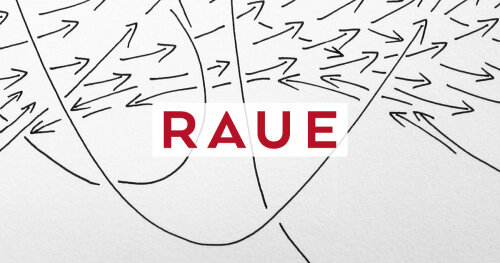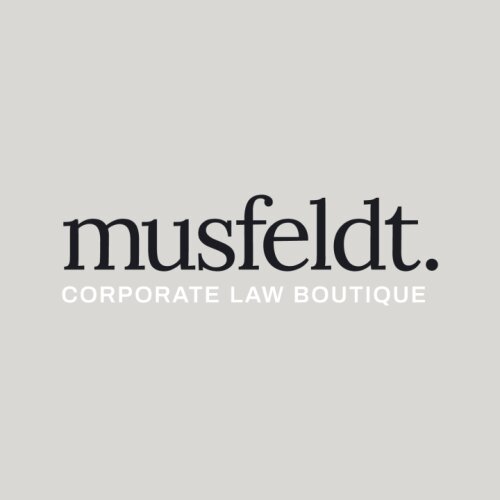Best Sanctions & Export Controls Lawyers in Berlin
Share your needs with us, get contacted by law firms.
Free. Takes 2 min.
List of the best lawyers in Berlin, Germany
About Sanctions & Export Controls Law in Berlin, Germany
Sanctions and export controls are important legal regimes that regulate the movement of goods, technologies, and services across national borders. In Berlin, Germany, these laws are particularly significant due to the city’s role as a major international business center and port of commerce. Sanctions typically refer to restrictions or embargoes imposed by governments or international bodies on countries, individuals, organizations, or goods, often in response to political or security concerns. Export controls are regulations that restrict the export, transfer, or re-export of specific products, technologies, or services for reasons related to national security, foreign policy, or compliance with international agreements.
In Germany, sanctions and export controls are governed by both German national law and the regulations of the European Union, with additional oversight and enforcement by international frameworks including the United Nations. Berlin businesses and residents must understand and comply with these rules to avoid severe legal penalties and potential reputational damage.
Why You May Need a Lawyer
Navigating the complex legal landscape of sanctions and export controls can be challenging. There are many situations where individuals and businesses in Berlin may require legal assistance, such as:
- Conducting business with foreign partners or exporting goods and services internationally
- Uncertainty about whether a transaction involves sanctioned countries, entities, or individuals
- Potential violations of export control regulations and facing administrative or criminal investigations
- Applying for export licenses or seeking exemptions for restricted goods or dual-use items
- Acquisitions, mergers, or joint ventures that may trigger review under foreign trade and sanctions regimes
- Developing internal compliance programs to ensure ongoing adherence to legal requirements
- Responding to inquiries or audits from regulatory bodies
Legal counsel can help interpret complex rules, represent you before authorities, and help prevent costly mistakes.
Local Laws Overview
Sanctions and export controls in Berlin are shaped by a variety of legal sources:
- German Foreign Trade and Payments Act (AWG) and Foreign Trade and Payments Ordinance (AWV) - Establish the general framework for export regulations, including prohibitions, licensing, and penalties for violations.
- European Union Regulations - As an EU member state, Germany implements all EU legal acts on sanctions, including embargoes against specific countries (such as Iran, Russia, and North Korea), and restrictions on listed individuals and entities.
- Dual Use Regulation - Controls on goods, software, and technology that may be used for both civilian and military applications, requiring special licenses for export outside the EU.
- International Sanctions - United Nations Security Council Resolutions and other international agreements that Germany must observe.
- Customs and Tax Law - Additional rules apply at the point of export, including customs procedures and reporting obligations.
Violations of these laws can result in severe administrative penalties and criminal prosecution, including fines and imprisonment. Regulatory authorities in Berlin are vigilant in enforcing these regulations, making compliance a necessity.
Frequently Asked Questions
What are export controls?
Export controls are legal restrictions on the movement of certain goods, software, technology, and services across national borders to protect national security and fulfill international commitments.
Who oversees sanctions and export controls in Berlin, Germany?
The primary authorities include the Federal Office for Economic Affairs and Export Control (BAFA), the German Customs Authority, and relevant ministries, often implementing EU and international directives as well.
What is a dual-use item?
A dual-use item is a good, technology, or software that has both civilian and military applications. Exporting such items typically requires special authorization.
What are the penalties for violating sanctions or export controls?
Penalties can range from fines and administrative measures to criminal charges, including possible imprisonment for serious or intentional violations.
Do I need a license to export goods from Berlin?
Some goods require an export license, especially if they are restricted or listed under EU dual-use regulations or are being sent to certain countries or individuals subject to sanctions.
Are there current sanctions affecting Russian business in Germany?
Yes, the European Union, and therefore Germany, has imposed extensive sanctions on Russia, including trade restrictions, asset freezes, and limits on access to certain technologies and financial services.
Can personal or humanitarian exports be exempt from controls?
Some humanitarian exports or personal goods may qualify for exemptions, but these are strictly regulated. Consultation with a legal professional or the relevant authority is essential.
How do I know if my business partner is subject to sanctions?
Businesses are expected to conduct due diligence and regularly screen partners against relevant EU and international sanctions lists to ensure compliance.
What should I do if contacted by authorities about a possible violation?
Seek immediate legal advice. Do not respond in detail or provide documents before consulting with a qualified lawyer specializing in sanctions and export controls.
How can my company set up a compliance program?
A lawyer can help assess your risk profile, develop internal policies, train staff, and establish procedures for screening, record keeping, and regular compliance audits.
Additional Resources
If you need more information or guidance, consider consulting the following organizations and governmental bodies:
- Federal Office for Economic Affairs and Export Control (BAFA) - Main authority on export licensing and control in Germany
- German Customs Authority (Zoll) - Responsible for customs enforcement at borders
- European External Action Service (EEAS) - Publishes up-to-date EU sanctions lists and guidance
- Chamber of Commerce and Industry Berlin (IHK Berlin) - Provides information and training on export regulations
- German Federal Foreign Office - Offers information on international sanctions and foreign trade law
Next Steps
If you believe that you or your business may be affected by sanctions and export controls, it is essential to:
- Review current activities and transactions for potential compliance risks
- Gather all relevant documentation related to your exports or international business
- Contact a qualified lawyer or legal advisor with experience in sanctions and export control law
- Schedule an initial consultation to discuss your specific situation and receive guidance on compliance or defense strategies
- Stay informed by subscribing to updates from official regulatory bodies and trade associations
Taking proactive steps with the help of an experienced legal professional in Berlin will help safeguard your interests, ensure compliance, and mitigate risks associated with sanctions and export controls.
Lawzana helps you find the best lawyers and law firms in Berlin through a curated and pre-screened list of qualified legal professionals. Our platform offers rankings and detailed profiles of attorneys and law firms, allowing you to compare based on practice areas, including Sanctions & Export Controls, experience, and client feedback.
Each profile includes a description of the firm's areas of practice, client reviews, team members and partners, year of establishment, spoken languages, office locations, contact information, social media presence, and any published articles or resources. Most firms on our platform speak English and are experienced in both local and international legal matters.
Get a quote from top-rated law firms in Berlin, Germany — quickly, securely, and without unnecessary hassle.
Disclaimer:
The information provided on this page is for general informational purposes only and does not constitute legal advice. While we strive to ensure the accuracy and relevance of the content, legal information may change over time, and interpretations of the law can vary. You should always consult with a qualified legal professional for advice specific to your situation.
We disclaim all liability for actions taken or not taken based on the content of this page. If you believe any information is incorrect or outdated, please contact us, and we will review and update it where appropriate.















